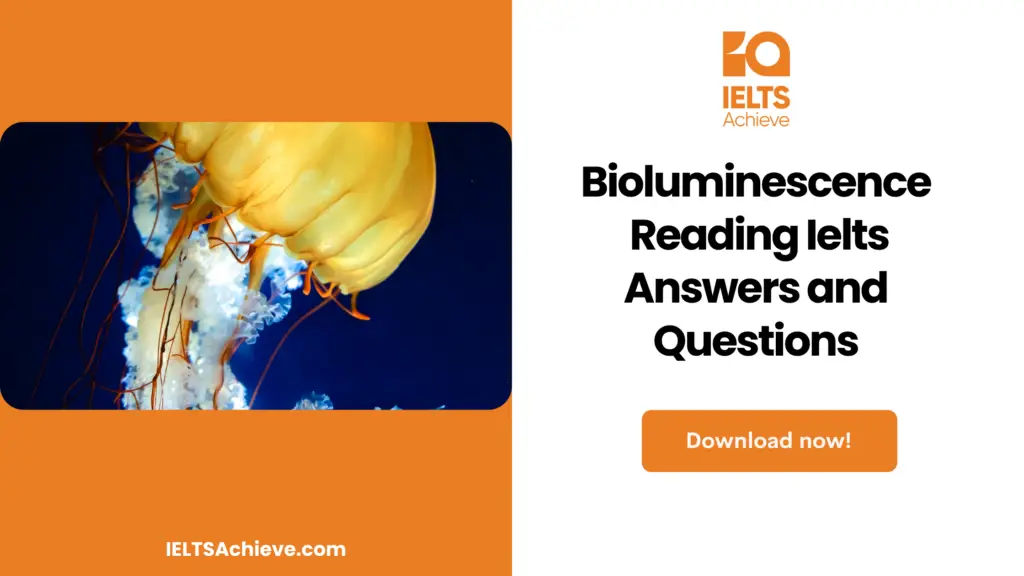The Blog post contains the following IELTS Reading Questions:
- IELTS Reading True False Not Given
- IELTS Reading Sentence Completion
- IELTS Reading Multiple Choice Questions
- IELTS Reading Locating Information
Stay informed and prepared for success – Explore our comprehensive Reading Test Info page to get valuable insights, exam format details, and expert tips for mastering the IELTS Reading section.
Sleep Reading Passage

Sleep
Scientists and medical professionals still have a lot to learn about the process of sleep, just like they do about many other aspects of the body. The idea that the body entirely slows down when sleeping has been disproved; instead, it is now known that the body’s primary organs and regulatory systems, such as the lungs, heart, and stomach, continue to function actively throughout sleep. The glands and lymph nodes, which support the immune system, are yet another vital organ that works at night. This is a common reason why getting insufficient sleep reduces the body’s natural immunity.
Certain systems may even become more active when we’re sleeping. hormones needed, for illustration, for the formation of new nerve cells and for the growth of muscles. The brain’s learning and memory-related circuits have enhanced activity.
Another prevalent misconception about sleep is that as we become older, our bodies require less sleep. While it is true that babies require 16 hours of sleep compared to teenagers and adults who require 9 hours and 8 hours of sleep, respectively, this does not imply that older individuals require less sleep. What is true, though, is that people frequently receive less sleep or perceive their sleep to be less restorative for a variety of reasons. This is due to the fact that as people age, they spend less time in deep, restorative sleep and are more vulnerable to waking up suddenly. Moreover, sleep disorders like insomnia, sleep apnea, and heart issues are more prevalent in older persons.
It takes more than simply laying your head on the pillow at night and waking up in the morning to get a decent night’s sleep. Your sleep occurs in cycles during the course of the night, alternating between deep, restorative sleep and more awake, dream-inducing stages. You spend more time in a lighter dream sleep as the night goes on.
Rapid eye movement (REM) sleep, when you dream, and noil-rapid eye movement (NREM) sleep are two unique and separate stages of sleep patterns. Every night, you typically experience 3 to 5 REM sleep cycles, each lasting anything from 5 minutes to over an hour. During these cycles, your body becomes more active. With an increase in heartbeat, blood pressure, and brain activity, breathing becomes rapid, shallow, and irregular. Your fingers and toes may twitch, your body temperature may vary, and you may sweat or shiver even if your major muscles typically do not move.
This sleep, according to research, is crucial for your brain. It is at its busiest during this time, resolving stress and processing memories and emotions. The parts of the brain used for learning and acquiring new skills are active. In actuality, the brain waves observed during REM sleep are comparable to those observed during wakefulness.
Dreamlessness is a characteristic of NREM (noil-rapid eye movement) sleep. Four stages of increasingly deep sleep comprise NREM sleep. As you progress through the stages, it gets harder to wake up since you’re more relaxed and less aware of your surroundings. As you progress through the NREM stages, your body will likewise become less active, functioning the opposite way from REM sleep. When you are about to nod off is Stage 1 of NREM sleep. Usually lasting 5 to 10 minutes, you can be easily woken during this time. You are in stage 2 of a light sleep, which is the period just before you enter a deep sleeping pattern. 20 minutes or so pass during it. Stage 3 sees the onset of deep sleep, which prepares the body for stage 4, where you have trouble waking up and are unconscious of your surroundings. At this point, sleep talking and sleepwalking are possible. The most crucial phase for your body. Your brain has stopped immediately and is healing. Your major muscles receive a blood flow redirection from your brain, helping them to repair any harm from your exhausting day at work. It might be disorienting to be abruptly awakened from stage 4 sleep, which is why using an alarm clock with an increasing ring is beneficial.
You will transition from deep Stage 4 sleep to light Stage 2 sleep, then into REM sleep, before the cycle repeats itself, about an hour and a half into your sleep cycle. NREM sleep makes up about 75% of your sleep. NREM sleep makes up roughly six of an eight-hour sleep cycle. You spend more time dreaming and having lighter sleep as the night goes on.
Sleep debt occurs when you consistently get less sleep than you require each night—even by only one hour. It could cost you in the form of daytime sleepiness, difficulty concentrating, irritability, decreased productivity, and a higher chance of slips and falls. A daytime nap might help undo some of the damage caused by sleep debt, even though it cannot completely compensate for a good night’s sleep. But, avoid napping beyond 3 p.m. as these late naps may prevent you from falling asleep at night. Moreover, limit your naps to no more than 30 minutes, as prolonged sleep will make it more difficult for you to get up and resume your normal activities.
Unlock your full potential in the IELTS Reading section – Visit our IELTS Reading Practice Question Answer page now!
Recommended Questions:
Renewable Energy IELTS Reading Question with Answer
Sleep IELTS Reading Questions
Questions 1-4
Do the following arguments match with the details in the reading passage? On your answer sheet in the boxes 1-4, write:
TRUE if the statement agrees with the information
FALSE if the statement contradicts the information
NOT GIVEN if there is no information on this
- It was once thought that biological functions slowed down when we sleep.
- When suffering from a medical issue, teenagers experience less sleep loss than adults.
- The depth of our sleep deepens during the night.
- Heart issues and other illnesses might result from insufficient sleep.
Enhance your skills in identifying information as True, False, or Not Given. Click here to discover expert strategies and techniques for mastering this question type in the IELTS Reading section.
Questions 5-8
Complete the sentences given below. Choose NO MORE THAN TWO WORDS from the paragraphs for each answer. Fill in boxes 5 – 8 on your answer sheet with your responses.
5. Reduced __________ can be a benefit of REM sleep.
6. Similar to those observed when awake, ____________ are present during REM sleep.
7. It takes little effort to be _________ during Stage 1 NREM sleep.
8. Awakening unexpectedly from a deep sleep may result in ____________.
Enhance your sentence completion skills in the IELTS Reading section. Click here to access our comprehensive guide and learn effective strategies for filling in missing words or phrases in sentences.
Questions 9 and 10
Choose your answers from A-EEnter your answers in boxes 9 and 10. In either order an answer can be given.
REM Sleep
- Is more typical among young people.
- When we dream.
- May make your extremities move independently.
- Each night lasts about an hour.
- When the brain is at its most at ease.
Ready to improve your performance in Multiple Choice Questions (MCQs)? Click here to access our comprehensive guide on how to tackle MCQs effectively in the IELTS Reading section.
Questions 11-14
The reading passage is comprised of nine paragraphs from A to I Which passage includes the information below?
Fill in boxes 11–14 with the proper letter from A–I.
11. Generations’ variations in sleeping habits.
12. Resources are diverted, resulting in reduced brain activity.
13. The cycle is repeated.
14. Dangers of accumulated sleep deprivation.
Unlock your full potential in the IELTS Reading section – Visit our IELTS Reading Practice Question Answer page now!
Recommended Questions:
Renewable Energy IELTS Reading Question with Answer
Sleep Reading Answers
1. True
2. Not Given
3. False
4. False
5. Stress
6. Brain waves
7. (easily) woken
8. Disorientation
9. B/C
10. B/C
11. C
12. G
13. H
14. I

We hope you found this post useful in helping you to study for the IELTS Test. If you have any questions please let us know in the comments below or on the Facebook page.
The best way to keep up to date with posts like this is to like us on Facebook, then follow us on Instagram and Pinterest. If you need help preparing for the IELTS Test, join the IELTS Achieve Academy and see how we can assist you to achieve your desired band score. We offer an essay correction service, mock exams and online courses.

